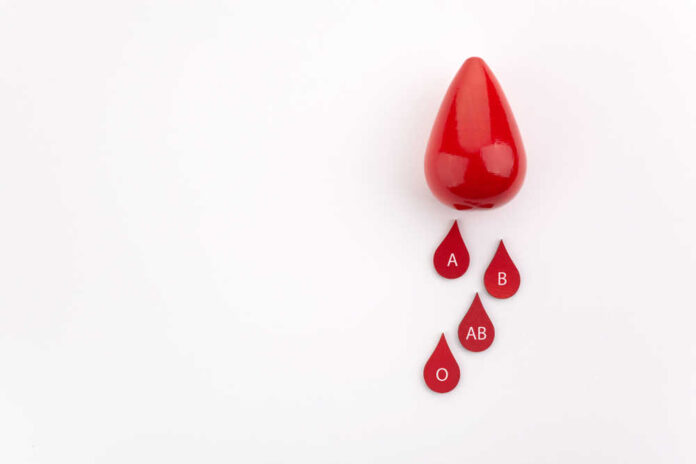
A strange diet trend has spread over the past few decades, claiming that you should eat according to your blood type.
The idea behind this diet is that each blood type has different characteristics and that certain foods are better or worse for each type.
Understanding ABO Blood Types
In 1901, Austrian physician and researcher Karl Landsteiner noticed that when he mixed blood from different people in a test tube, sometimes – but not always – it would clump together.
After further experimentation, he learned to classify human blood into three groups.
Blood from group A could be mixed with other groups A blood without agglutinating (clumping). Similarly, group B blood could be mixed with other group B blood without agglutinating. But if group A blood was mixed with group B blood, it would agglutinate. Blood from group C (later called group O) would agglutinate with both A and B groups, but not with its own blood group.
He eventually realized that this reaction was due to the presence or absence of specific antigens and antibodies. Antigens are molecular structures that induce an immune response (common antigens include pollen, bacteria, and viruses), and antibodies are the proteins that neutralize antigens.
Type A blood contained “A” antigens and “anti-B” antibodies, and type B had “B” antigens and “anti-A” antibodies. Type O had no antigens but both types of antibodies. A fourth group was later discovered, called type AB, which had both A and B antigens and neither type of antibody.
This discovery was crucial in cases of blood transfusions because it showed how and why receiving blood from the wrong group could potentially cause a fatal reaction.
The Blood Type Diet
Over the past 100 years, many people have wondered if a person’s blood type had any additional meaning. Could it indicate differences in personality, health risks, or even the types of foods a person should eat?
In the 1990s, a book was written that claimed that each blood type reacted differently to certain foods, and people should eat according to their blood type.
- Type A: Should eat lots of fruits, vegetables, beans, and whole grains, but should not eat meat.
- Type B: Should eat green vegetables, some meats, and low-fat dairy, but should not eat corn, tomatoes, and grains.
- Type O: Should eat high-protein foods (lean meat, fish, poultry, vegetables) and low amounts of grains, beans, and dairy.
- Type AB: Should eat green vegetables, tofu, seafood, and dairy but should avoid alcohol, caffeine, and smoked meats.
Does It Work?
Recent research has shown that diets for types A, O, and AB can all have beneficial health effects.
But it doesn’t matter who follows the diet.
The type A diet is a good diet for anyone, regardless of what their blood type is. And the same goes for the type O and AB diets.
The diet prescribed for people with blood type B didn’t seem to have any significant benefits for anyone’s health, whether they had type B blood or any other type.
It’s good to pursue a healthier diet, but basing your decisions on your blood type is not going to help you.






















